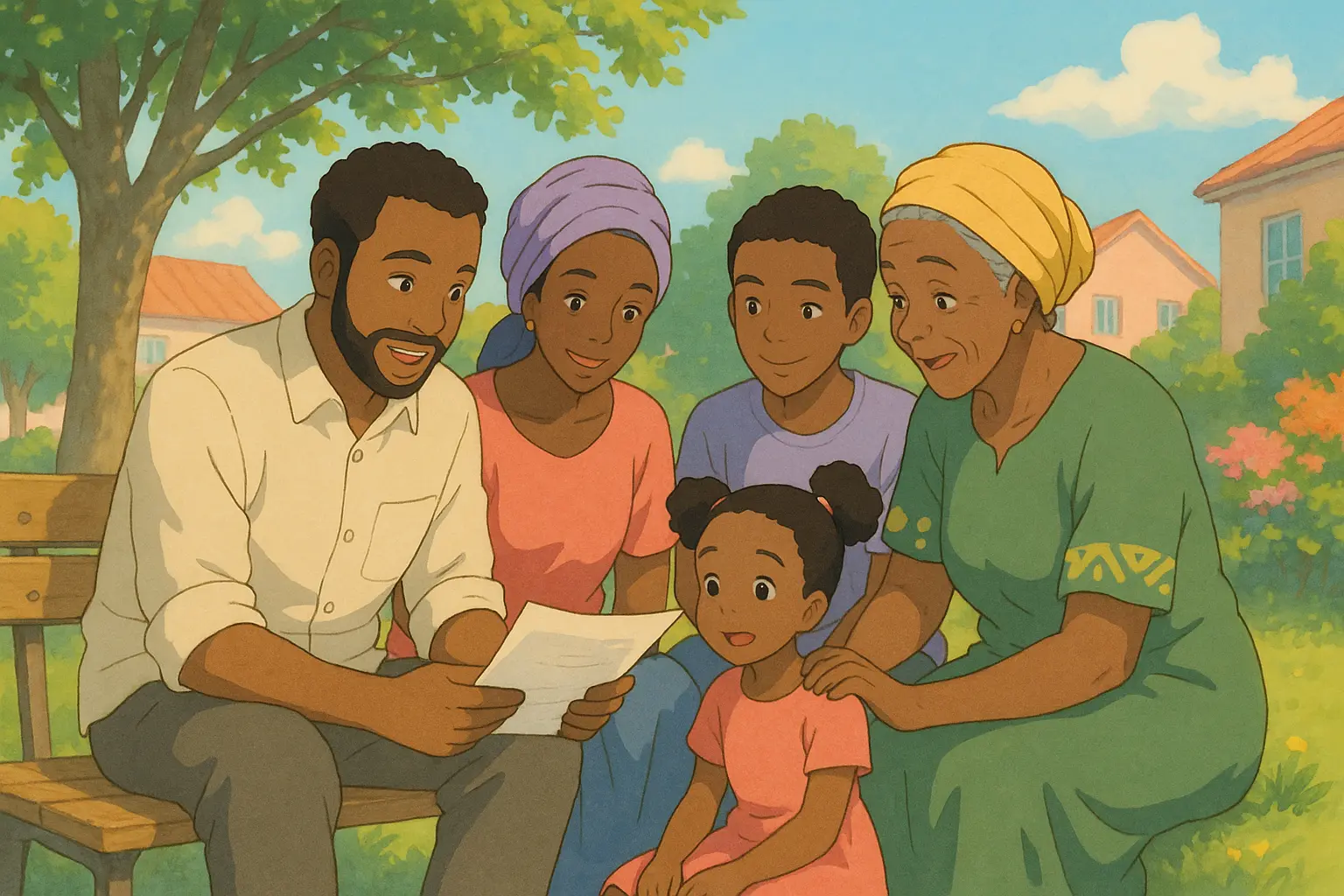By Lionel Kubwimana
••8 min read
Want your kids to learn your native language? Here's how one parent started a neighborhood language group and found other African families who care about culture too.

Picture this: You're at the park with your toddler when you hear another parent speaking your native language to their child. Your heart jumps a little. Finally, someone who gets it!
That's exactly what happened to me in Atlanta. I heard a mom speaking Kirundi to her son, and we started talking. We both wanted the same thing - for our kids to grow up proud of their African heritage and speaking our languages.
That conversation changed everything. It led to a language exchange group that now has over 15 families. Our kids are learning their native languages, making friends, and feeling proud of who they are.
If you want something similar for your family, this guide will show you exactly how we did it. No fancy degrees or big budgets needed - just love for your culture and a little bit of organizing.
Before we jump into the "how," let's talk about the "why."
Your child's brain is like a super-powered computer right now. Kids who learn two languages:
But here's the thing - you can't do this alone. Kids need to hear their language from different people and in fun settings. That's where a neighborhood group comes in.
Plus, let's be honest. Parenting in a new country can feel lonely sometimes. Having other parents who understand your journey? That's priceless.
Facebook groups are gold mines for finding other African parents. Here's what worked for us:
Search for groups like:
Post something simple like: "Hi everyone! I'm looking for other parents who want their kids to learn our native languages. Anyone interested in starting a small group?"
One post got us 50+ responses. Seriously.
Don't laugh - flyers work! We put them up at:
Keep your flyer simple:
Tell everyone you know what you're doing. Your hairdresser, your kids' teachers, neighbors - you never know who has a friend who's interested.
Word of mouth brought us some of our most committed families.
For your first meeting, focus on getting to know each other. We did a potluck dinner where everyone brought a dish from their country.
Here's what made it special:
Your first meeting can be at:
Make sure it's:
Be upfront about what you want to achieve:
But stay flexible. Your group will grow and change, and that's okay.
Ages 3-7:
Ages 8-12:
Teenagers:
Don't forget about yourselves! While kids are playing:
First 15 minutes: Everyone arrives, kids play freely Next 30 minutes: Language activities for kids (adults chat nearby) Next 30 minutes: Cultural activity (cooking, dancing, crafts) Last 15 minutes: Snack time and planning for next week
Libraries are your best friend. Most offer:
Schools might help too. Some will:
Cultural centers often have:
Local African businesses often want to support families. Ask if they can:
Look for existing groups you can partner with:
Don't try to do everything yourself! Let other parents:
This keeps it fresh and prevents burnout.
Monthly celebrations for:
Quarterly big events like:
WhatsApp groups work great for:
Simple scheduling tools like Doodle help:
When families miss meetings:
When personalities clash:
When energy drops:
In the kids:
In the families:
These moments matter more than perfect attendance or formal assessments.
Start anyway! Some of our best sessions had just 3-4 families. Small groups can be more personal and meaningful.
Perfect! Kids learn that Africa is diverse, and parents can learn from each other. We've had families teaching each other basic phrases from different languages.
You don't need to be! You're sharing your culture and language with love. That's more powerful than any teaching degree.
Welcome everyone! Kids with one African parent, adoptive families, families learning about their heritage - diversity makes your group stronger.
Keep it free or very cheap. Maybe ask for $5-10 per family per month to cover snacks and materials, but never let money be a barrier.
Here's what I wish someone had told me when we started: This isn't just about language. It's about belonging.
Your kids will grow up knowing they're part of something bigger. They'll have friends who understand their experience. They'll feel proud of their heritage instead of hiding from it.
And you? You'll have a community that gets the unique joys and challenges of raising African kids in America. You'll laugh together, solve problems together, and celebrate your cultures together.
One year after that conversation in the park, our kids performed traditional songs at the school talent show. Parents cried happy tears as our children sang proudly in languages some of their classmates had never heard.
That's the power of community. That's what you're building.
Your kids are waiting for this gift. Your community is waiting for your leadership. And other parents are out there right now, hoping someone like you will take the first step.
You don't need to be perfect. You just need to start.
The conversation at the park changed my family's life. Your first conversation with another parent who shares your dream could change yours too.
Take that first step. Your kids' future selves will thank you.
What questions do you have about starting your own language exchange group? Have you tried something similar in your community? Share your thoughts and experiences - we're all learning together.